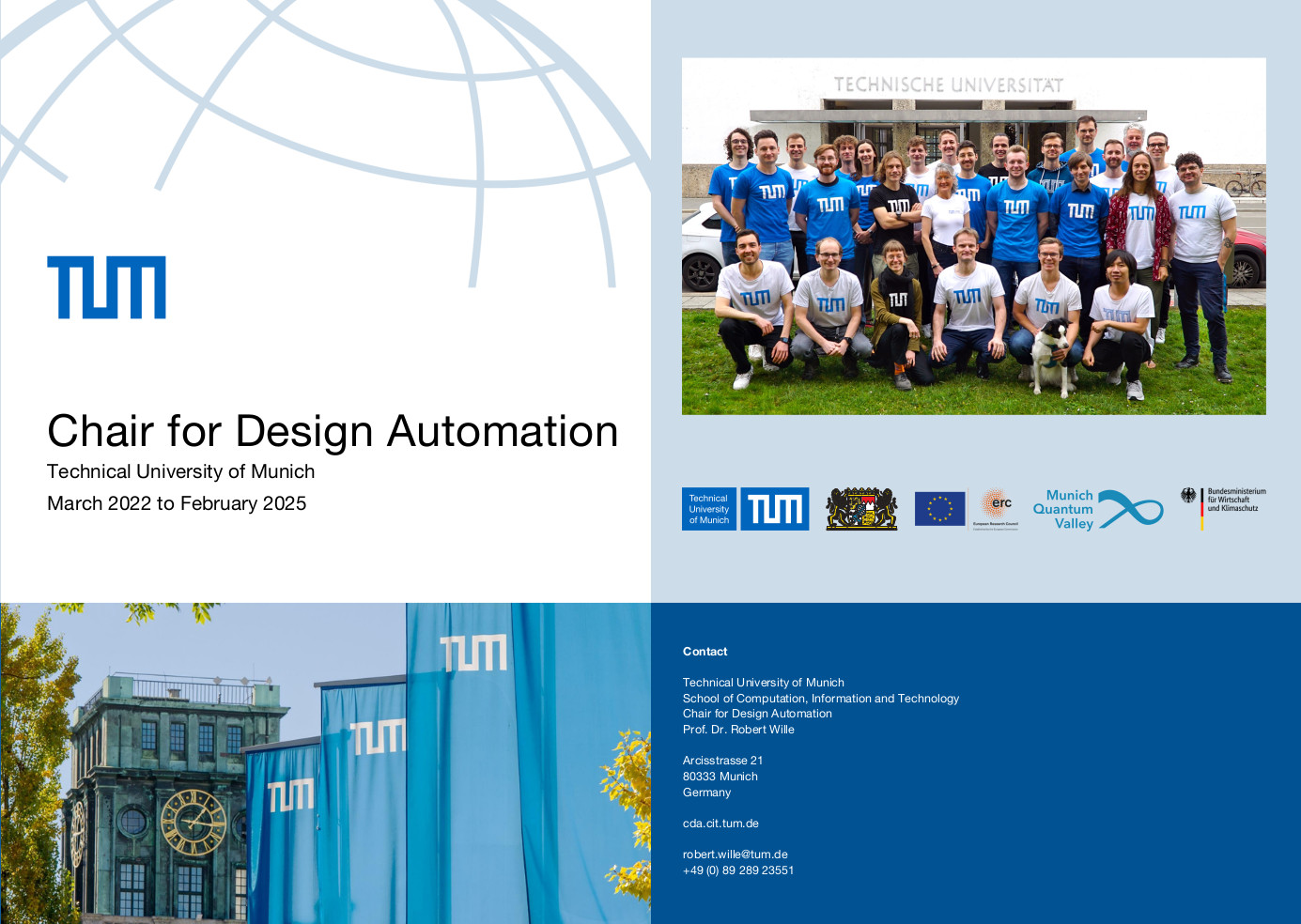
Machine Learning for Design Automation and Signal Processing
Machine Learning is an sub-field of Artificial Intelligence, where systems are able to learn and improve from data. Given the increasing amount of available data, approaches based on Machine Learning have been proposed and are currently applied in a variety of fields such as Computer Vision, Natural Language Processing, etc. But also in the field of Design Automation and Signal Processing, data-driven methods have been showing promising potential.
Our Work
In our group, we create, modify, and adapt Machine Learning algorithms for Design Automation and Signal Processing applications. To this end, we focus on developing general methods and, then, apply them on fields where their performance overcomes the state of the art. Machine Learning areas of interest to our group are: Metric Learning, Reinforcement Learning, Graph Representation Learning, Generative Models, Domain Adaptation, etc.
The fields, we are active in, include the following:
-
Machine Learning for Design Automation: Due to the ever increasing complexity of circuits and systems, the design of circuits and systems often starts at high levels of abstraction. However, already at this stage severe design choices are made which will have a substantial impact, e.g., at the eventual costs of the design. But properly estimating those effects is hard to impossible using conventional methods, which is why those problems are tackled, e.g., by “trial and error”, “gut feeling”, and “experience of the design engineer” thus far. This frequently yields situations where, after months of implementations, design choices turn out to not satisfying the desired objectives—a severe threat for time to market which is crucial in the EDA industry. In our work, we investigate how Machine Learning algorithms can be utilized to improve this process by either providing proper estimates of the effects of these early design decisions on the resulting quality or even allowing to automatically optimized those decisions in the first place.
-
Machine Learning for Signal Processing: Signal Processing algorithms are usually dealing with changeable, complex environments (e.g., radar-based object detection in limited and closed environments). Machine Learning methods can easily adapt to such new environments and can deal with difficult scenarios (e.g., Out of Distribution Detection, Signal occlusion and reflections, etc.). In our work, we aim to elaborate Machine Learning algorithms which offer robust performances in a variety of scenarios and settings for sensor-based applications.
-
Machine Learning Algorithms: Besides the application of Machine Learning in the domains sketched above, we are also interested a more fundamental research on this topic, i.e., the consideration of Metric Learning, Reinforcement Learning, and Graph Representation Learning. To this end, we aim to create innovative and performant algorithms that improve the state of the art in general.
Selected Papers
We developed several methods and tools described in corresponding scientific papers. In the following, you can find a selected set of the resulting publications. A full list of papers is available.
-
L. Servadei, J. H. Lee, J. A. A. Medina, M. Werner, S. Hochreiter, W. Ecker, and R. Wille. Deep Reinforcement Learning for Optimization at Early Design Stages. IEEE Design & Test, 2022.
-
R. Elnaggar, L. Servadei, S. Mathur, R. Wille, W. Ecker, and K. Chakrabarty. Accurate and Robust Malware Detection: Running XGBoost on Run-Time Data from Performance Counters. IEEE Transactions on Computer Aided Design of Integrated Circuits and Systems (TCAD), 2021.
-
L. Servadei, E. Mosca, E. Zennaro, K. Devarajegowda, M. Werner, W. Ecker, and R. Wille. Accurate Cost Estimation of Memory Systems Utilizing Machine Learning and Solutions from Computer Vision for Design Automation. IEEE Transactions on Computers (TC), 69(6):856-867, 2020. PDF
-
L. Servadei, E. Zennaro, T. Fritz, K. Devarajegowda, W. Ecker, and R. Wille. Using Machine Learning for Predicting Area and Firmware Metrics of Hardware Designs from Abstract Specifications. Microprocessors and Microsystems (MICPRO), 2019.
-
L. Servadei, H. Sun, J. Ott, M. Stephan, S. Hazra, T. Stadelmayer, D. S. Lopera, R. Wille, and A. Santra. Label-Aware Ranked Loss for Robust People Counting Using Automotive In-Cabin Radar. In International Conference on Acoustics, Speech and Signal Processing (ICASSP), 2022.
-
L. Servadei, E. Mosca, K. Devarajegowda, M. Werner, W. Ecker, and R. Wille. Cost Estimation for Configurable Model-Driven SoC Designs Using Machine Learning. In Great Lakes Symposium on VLSI (GLVLSI), 2020. PDF
-
L. Servadei, E. Zennaro, K. Devarajegowda, M. Manzinger, W. Ecker, and R. Wille. Accurate Cost Estimation of Memory Systems Inspired by Machine Learning for Computer Vision. In Design, Automation and Test in Europe (DATE), 2019. Acceptance rate: 35%. PDF
-
D. S. Lopera, L. Servadei, G. N. Kiprit, S. Hazra, R. Wille, and W. Ecker. A Survey of Graph Neural Networks for Electronic Design Automation. In Workshop on Machine Learning for CAD (MLCAD), 2021. PDF
-
L. Servadei, J. Zheng, J. A. Arjona, M. Werner, V. Esen, S. Hochreiter, W. Ecker, and R. Wille. Cost Optimization at Early Stages of Design Using Deep Reinforcement Learning. In Workshop on Machine Learning for CAD (MLCAD), 2020. Best Paper Award Candidate.
-
M. Werner, L. Servadei, R. Wille, and W. Ecker. Automatic compiler optimization on embedded software through k-means clustering. In Workshop on Machine Learning for CAD (MLCAD), 2020.
-
L. Servadei, E. Mosca J.-H. Lee, J. Yang, V. Esen, R. Wille, and W. Ecker. Combining Evolutionary Algorithms and Deep Learning for Hardware/Software Interface Optimization. In Workshop on Machine Learning for CAD (MLCAD), 2019. PDF
-
L. Servadei, J. Yang, E. Zennaro, K. Devarajegowda, W. Ecker, and R. Wille. Methods of Statistical Analysis and Machine Learning for the Evaluation of Generated Hardware and Firmware Design. In International Workshop on Combinations of Intelligent Methods and Applications, 2019.
-
L. Servadei, E. Zennaro, K. Devarajegowda, W. Ecker, and R. Wille. Quality Assessment of Generated Hardware Designs Using Statistical Analysis and Machine Learning. In International Workshop on Combinations of Intelligent Methods and Applications, 2018. PDF
Contact
If you are interested in our work and/or have any questions, feel free to contact us via ml.cda@xcit.tum.de.



